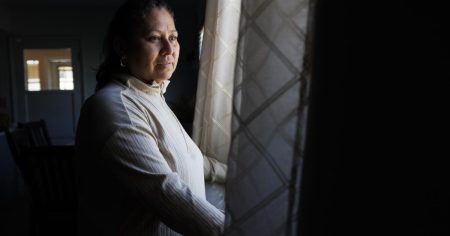Election in Liechtenstein: A New Leader Emerges
On a recent Sunday, the small but significant country of Liechtenstein made headlines as its citizens cast their votes in a national election, paving the way for a new leader to take the helm. Brigitte Haas, a distinguished lawyer and member of the Fatherland Union party, emerged victorious in the elections, securing her position as the likely candidate to lead the government. Her party garnered an impressive 38.3% of the votes, while the Progressive Citizens Party trailed behind with 27.5%. In Liechtenstein, tradition dictates that the leader of the party with the highest vote share is appointed as the Prime Minister, making Brigitte Haas the prime candidate for this esteemed role.
Understanding Liechtenstein’s Unique Government Structure
Liechtenstein, a nation with a rich history and a population of around 38,000, operates as a constitutional hereditary monarchy, a system that balances the powers of the monarchy with those of the elected parliament. This dual governance structure ensures that while the monarch holds significant influence, the people also have a strong voice in shaping the country’s future. The current head of state, Prince Hans-Adam II, embodies the monarchical tradition, yet the day-to-day governance has been in the hands of his eldest son, Prince Alois, who has served as regent since 2004. This arrangement was reinforced by a 2003 referendum that expanded the monarchy’s authority, granting Prince Alois the power to veto legislation, thus maintaining a equilibrium between tradition and modern democratic practices.
The Role of the Monarchy in Liechtenstein’s Governance
The monarchy in Liechtenstein holds a revered place in the nation’s governance, blending historical continuity with contemporary political responsibilities. While Prince Hans-Adam II serves as the symbolic head of state, the active engagement of Prince Alois as regent underscores the adaptability of the monarchical system. Over the years, the monarchy has evolved, with the 2003 referendum being a pivotal moment that redefined the balance of power. This change not only reinforced the monarch’s role but also highlighted the willingness of the Liechtenstein people to adapt their governance structure to meet the needs of a modern society. The integration of the monarch’s veto power ensures that the legislative process reflects both royal and parliamentary perspectives, maintaining a harmonious balance.
Voter Engagement and the Significance of the Election
The recent election in Liechtenstein saw a commendable voter turnout of 76.3%, with 16,171 citizens casting their votes, reflecting the active participation of the electorate in shaping their country’s future. This level of engagement is a testament to the political consciousness and civic responsibility of the Liechtenstein people. The election outcome not only signifies a shift in political leadership but also represents a continued trust in the Fatherland Union party, which has consistently played a central role in the nation’s governance. Brigitte Haas’s victory, with her legal expertise, brings fresh perspectives to the leadership, potentially influencing policy directions and national development.
Implications of the Election Results
Brigitte Haas’s ascension to the role of Prime Minister could usher in a new era of governance in Liechtenstein, marked by her legal acumen and commitment to public service. Her party’s focus on stability and prosperity aligns with the nation’s historical trajectory, suggesting continuity in key policies while allowing for innovative approaches to contemporary challenges. The election also underscores the resilience of Liechtenstein’s unique governance model, which has successfully integrated monarchical and democratic elements. As Haas prepares to lead, her ability to navigate the intricate balance between these elements will be crucial in maintaining the nation’s harmony and progress.
Conclusion: Liechtenstein’s Path Forward
In conclusion, the recent election in Liechtenstein marks a significant chapter in the nation’s political journey. With Brigitte Haas at the helm, the country is poised to address future challenges while preserving its distinctive governance structure. The robust voter turnout and the smooth transition of power highlight the maturity and stability of Liechtenstein’s political system. As the nation moves forward under new leadership, it continues to serve as a model of effective governance, blending tradition with modern democratic values. The world watches with interest as Liechtenstein navigates this new phase, confident in its ability to thrive under the guidance of its newly elected leader.









